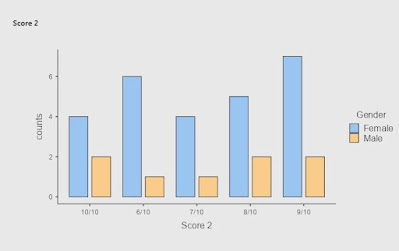A case study is an in-depth study of one
person, group, or event. In a case study, nearly every aspect of the subject's life and history
is analyzed to seek patterns
and causes of behavior. Case studies
can be used in a variety of fields including psychology, medicine, education, anthropology, political science, and social
work. The hope is that learning gained from studying one case can be
generalized to many others. Unfortunately, case studies tend to be highly subjective and it is sometimes difficult
to generalize results to a larger population. While
case studies focus on a single individual or group, they follow a format that
is similar to other types of
psychology writing. If you are writing a case study, it is important to follow
the rules of APA format.
Benefits and Limitations
·
A
case study can have both strengths and weaknesses. Researchers must consider
these pros and cons before deciding
if this type of study is appropriate for their needs.
·
One
of the greatest advantages of a case study is that it allows researchers to
investigate things that are often difficult to impossible to replicate in a lab. Some other benefits of a case study:
·
Allows
researchers to collect a great deal of information
·
Give
researchers the chance to collect information on rare or unusual cases
·
Allows
researchers to develop hypotheses that can be explored in experimental
·
Cannot
necessarily be generalized to the larger population
·
Cannot
demonstrate cause and effect
·
May
not be scientifically rigorous can lead to bias
·
Researchers
may choose to perform a case study if they are interested in exploring a unique
or recently discovered phenomenon.
The insights gained from such research can then help the researchers develop additional ideas and study questions that
might then be explored in future studies
Types
There are a few different types of case
studies that psychologists and other researchers might utilize
Collective case studies
These involve
studying a group of individuals. Researchers
might study a group of people in a certain
setting or look at an entire community of people.
Descriptive case studies
These involve
starting with a descriptive theory.
The subjects are then observed
and the information gathered is compared
to the pre-existing theory.
Explanatory case studies
These are often used to do causal
investigations. In other words,
researchers are interested in looking at factors that may have actually caused certain
things to occur.
Exploratory case studies
These are sometimes used as a prelude to
further, more in- depth research.
This allows researchers to gather more information before developing their research
questions and hypothesis
Instrumental case studies
These occur when the individual or group
allows researchers to understand
more than what is initially obvious to observers.
Intrinsic case studies
This type of case study is when the
researcher has a personal interest in
the case. Jean Piaget's observations of his own children are good examples of how an intrinsic cast study can contribute to the development of a psychological theory.










